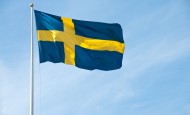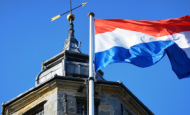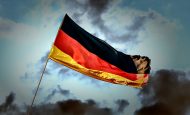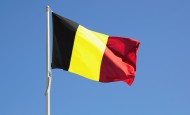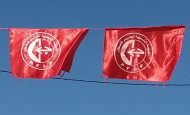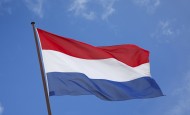European governments directly and indirectly provide upwards of $125 million annually to political advocacy NGOs active in the Arab-Israeli conflict. In turn, these NGOs inform EU policy, to the detriment of European policy-making. Many of the funding processes are secretive, lacking transparency and accountability.
Following the October 7th Hamas massacre, the Swedish government commissioned a review of its funding for Palestinians, whitewashing Sweden-funded Palestinian NGOs that justified and celebrated the October 7th attacks, denied Hamas’ atrocities, and continued to advance antisemitism.
Topics
On February 12, 2024, the Dutch Court of Appeal ruled that the Netherlands must cease transfer of US-owned F-35 fighter jet components to Israel. The appeal was initiated by four pro-BDS NGOs – Oxfam Novib, PAX, Rights Forum, and Amnesty International – which had sued the Dutch government to stop the transfers and had lost in District Court.
Topics
NGOs funded through German development programs (Entwicklungshilfe) with the stated aim to promote “human rights” and “international law” have failed to condemn these blatant violations of human rights and humanitarian principles.
Topics
In 2022, Al-Haq Europe and Bisan International Center were registered in Belgium as non-profit associations:.
Topics
On December 1, 2023, the Swedish International Development Cooperation Agency (Sida) published the results of an internal review, commissioned by the Swedish government, of all ongoing funding to Palestinians.
Topics
On October 25, 2023, Switzerland Federal Department of Foreign Affairs (FDFA) announced the suspension of funds to 11 NGOs (6 Palestinian and 5 Israeli) pending “an in-depth analysis of the compliance of these organizations’ communications with the FDFA’s Code of Conduct and anti-discrimination clause, to which external partners are subject.”
Topics
The report offers a set of practical recommendations for Germany aimed at assisting policy makers in expanding and implementing existing anti-terror regulations, so that more robust vetting can be introduced in the context of development aid.
Topics
This report provides representative examples of the activities of major Samidoun chapters and key activists in Europe and North America. This includes supporting the PFLP and its members, justifying the use of violence, and incitement against the state of Israel.
Topics
This analysis will present the details of funding to 39 Palestinian NGOs, including the identities of the donors (government or private), the grant’s time frame, and the source of the data.
Topics
The Netherlands has been advancing a political agenda of expanding Palestinian control over territory in this highly strategic region in the West Bank. And they are doing this with partners linked to terror organizations.
Topics
